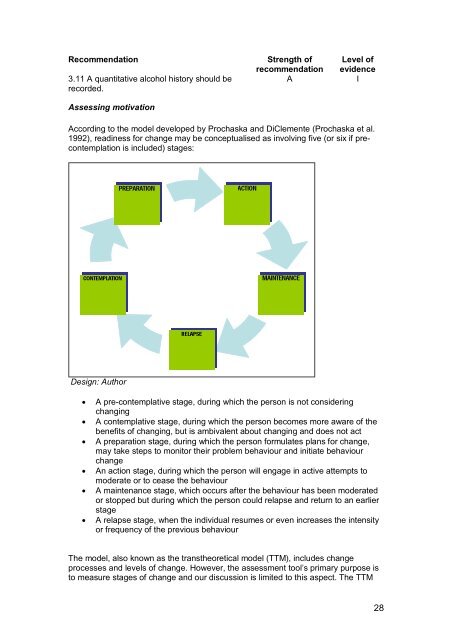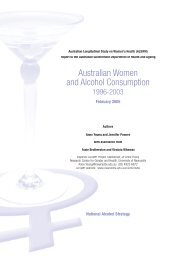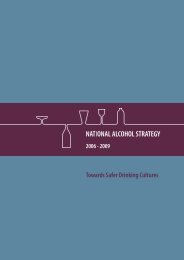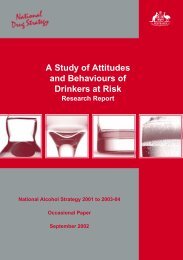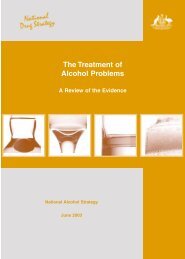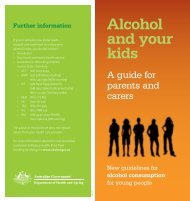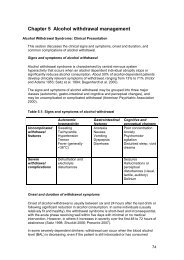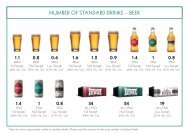Chapter 3 Screening, assessment and treatment planning - Alcohol
Chapter 3 Screening, assessment and treatment planning - Alcohol
Chapter 3 Screening, assessment and treatment planning - Alcohol
You also want an ePaper? Increase the reach of your titles
YUMPU automatically turns print PDFs into web optimized ePapers that Google loves.
MRecommendation3.11 A quantitative alcohol history should berecorded.Assessing motivationStrength ofrecommendationALevel ofevidenceIAccording to the model developed by Prochaska <strong>and</strong> DiClemente (Prochaska et al.1992), readiness for change may be conceptualised as involving five (or six if precontemplationis included) stages:PREPARATIONAC TIONC O N T EM PLAT I O NAINTENANC ERELAPSEDesign: Author• A pre-contemplative stage, during which the person is not consideringchanging• A contemplative stage, during which the person becomes more aware of thebenefits of changing, but is ambivalent about changing <strong>and</strong> does not act• A preparation stage, during which the person formulates plans for change,may take steps to monitor their problem behaviour <strong>and</strong> initiate behaviourchange• An action stage, during which the person will engage in active attempts tomoderate or to cease the behaviour• A maintenance stage, which occurs after the behaviour has been moderatedor stopped but during which the person could relapse <strong>and</strong> return to an earlierstage• A relapse stage, when the individual resumes or even increases the intensityor frequency of the previous behaviourThe model, also known as the transtheoretical model (TTM), includes changeprocesses <strong>and</strong> levels of change. However, the <strong>assessment</strong> tool’s primary purpose isto measure stages of change <strong>and</strong> our discussion is limited to this aspect. The TTM28


